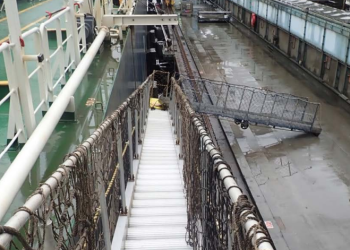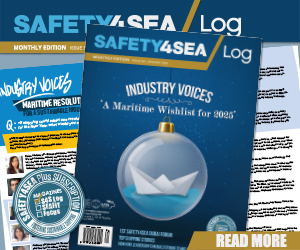CHIRP Maritime draws lessons learned from a reported event where during coal cargo discharge operations, the duty officer noticed that the manhole cover on the lower stool between cargo holds 2 and 3 had been left open without any warning signs.
It was later found that work had been interrupted, and the access to the stool was left open before loading began. In a toolbox meeting held afterwards, it was clarified that accessing the stool required an enclosed space entry permit, along with a proper risk assessment. Due to the nature of the cargo, the stool structure could potentially contain dangerous levels of methane gas.
CHIRP Comment
Entry into enclosed spaces requires a permit to work to be opened, which should be signed off and closed once the work is complete. This cannot have been properly done on the previous occasion that it was opened and is a serious violation of the enclosed space entry requirements, indicating significant deficiencies in the ship’s safety procedures.
While uncommon, these incidents emphasize the critical need for thorough inspections before loading operations begin. Independent inspectors normally check the holds, but if the new cargo is the same as the previous one then this inspection might have been omitted, or conducted from the deck, leaving the open manhole unnoticed.
The potential risks of these oversights are severe, particularly with cargo entering the stool, which would make retrieval difficult, especially as methane gas could accumulate in the area, creating a fire or explosion hazard.
Lessons learned
Capability—The crew lacked the necessary capability to properly carry out basic enclosed space entry procedures. Ensuring that the cargo hold is secure and ready for the next cargo is vital for maintaining safety on board.
Communications- There seems to be a breakdown in communication on the vessel, as evidenced by the failure to secure the manhole lid. This crucial piece of equipment was overlooked, indicating a weak reporting culture that needs to be addressed.
































































